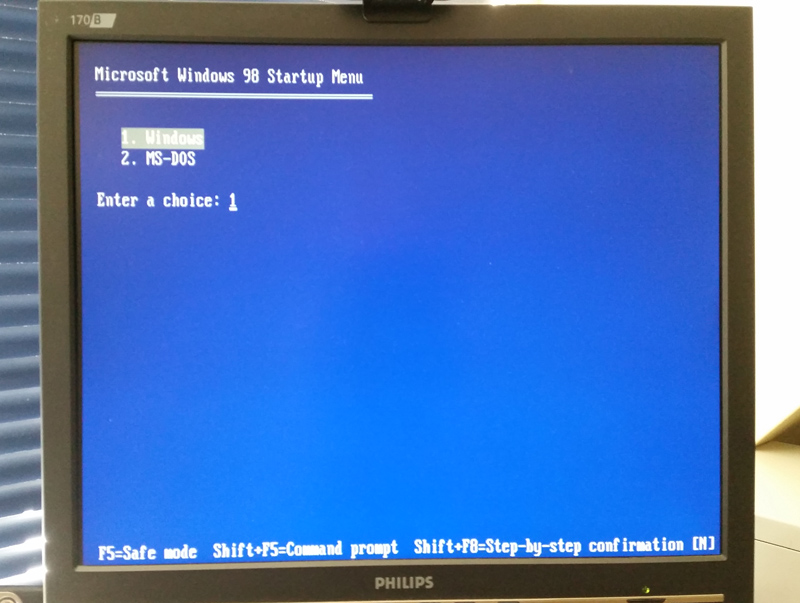

Select the VDI virtual disk type recommended by VirtualBox and click Next.ĭo not change the default location to store the virtual HDD to the location where you will install the virtual machine. If there is a virtual machine you have installed before, you can add the virtual disk from this window. To do a clean system install, you need to create a new virtual hard disk. In the Memory Size window, set the RAM size of 1024 MB (1 GB) for Windows 98 and click Next. However, you can configure a smaller RAM size for more stable installation in the virtual machine. The maximum RAM size of the Windows 98 system on a physical computer is 1.5 GB. However, if you don’t want to fill up your host disk unnecessarily, it may be better to locate it on an external disk. If you want to store the Windows 98 operating system on your host disk, leave the Machine Folder location as default.
Windows 98 usb problems 64 Bit#
If you see the 32 Bit architecture value instead of 64 Bit in the Version section while installing the more recent operating systems of Windows, you have to manually change the architectural structure according to the system you will install. If you want to install one of the 9x versions of Windows after installing the Oracle VM VirtualBox virtualization software on your host computer, you must configure the virtual machine’s settings correctly.Īfter running the VirtualBox software, start the virtual machine preparation wizard by clicking the Machine / New option from the tool menu or the New icon on the right.Īfter typing the name of the operating system you will install in the Name field of the virtual machine wizard, the values in the Type and Version fields will be automatically configured by the program.
Windows 98 usb problems how to#
How to Create a New Virtual Machine for Windows 98 Thus, instead of installing a system on an old computer, you can use old operating systems on your Windows 10 host computer. When you want to experience an outdated and obsolete operating system, you can use virtual machine programs such as VirtualBox or VMware. Windows 98 Second Edition (SE), which fixed many of the vulnerabilities and system bugs of the first version, was released on May 5, 1999, but was discontinued on June 30, 2002, on this system. Microsoft officially ended mainstream support for the Windows 98 First Edition (FE) operating system on June 30, 2002, and extended support on July 11, 2006. Thanks to the development of the user interface, most software produced by the developers is managed by GUI, but configuring some advanced settings requires the use of MSDOS. Windows 98 makes it easier for users to access the Internet, avoiding more complex network connection configurations. It also facilitates the use of many peripheral devices such as printers and scanners by enabling faster integration of USB devices. One of its biggest innovations is the FAT32 file system, which supports longer filenames and makes more efficient use of resources.


 0 kommentar(er)
0 kommentar(er)
